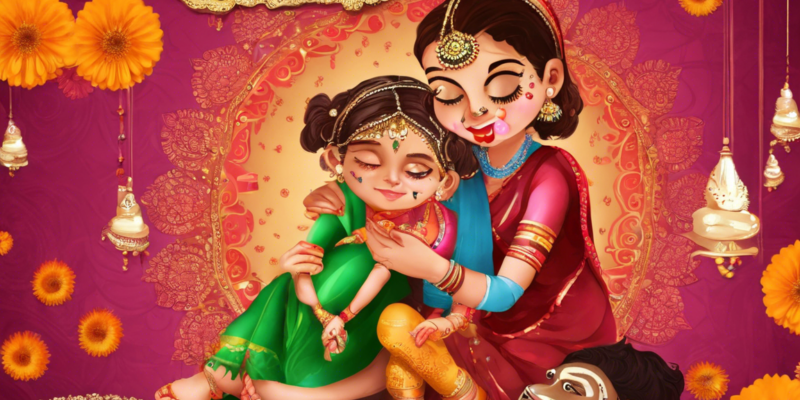
Rakshabandhan Kab Hai: Know the Date and Importance
Rakshabandhan Kab Hai: Know the Date and Importance
Introduction
Celebrated with great enthusiasm in India, Rakshabandhan is a special festival that celebrates the bond between a brother and a sister. This auspicious festival falls on the full moon day in the Hindu calendar month of Shravan and is a day filled with love, joy, and traditions. In this article, we will delve into the significance of Rakshabandhan, its date, rituals, and the importance of this beautiful festival.
Date of Rakshabandhan
Rakshabandhan is typically celebrated in the month of August every year. In 2021, Rakshabandhan falls on Sunday, August 22nd. The date of Rakshabandhan varies every year as it follows the lunar calendar. It is a time when sisters tie a sacred thread, known as Rakhi, on their brothers’ wrists, symbolizing love, protection, and a lifelong bond.
Significance of Rakshabandhan
Rakshabandhan holds immense significance in Indian culture and traditions. It is a celebration of the unique bond between brothers and sisters. The word “Rakshabandhan” is derived from the Sanskrit words “Raksha” (protection) and “Bandhan” (bond), which together signify a bond of protection.
Rituals of Rakshabandhan
Rakshabandhan is celebrated with various rituals that make the day special for siblings. The day typically starts with brothers and sisters getting ready for the occasion. Sisters perform aarti and apply tilak on their brothers’ foreheads, tying the sacred thread of Rakhi on their wrists. Brothers, in return, promise to protect and take care of their sisters. Gifts are exchanged, and families come together to celebrate this bond of love.
Importance of Rakshabandhan
Rakshabandhan is not just a festival but a celebration of the unique bond between siblings. It symbolizes love, protection, and care that siblings have for each other. The festival promotes unity, love, and the idea of standing by each other through thick and thin. It is a day to cherish the special relationship between a brother and a sister and to rejoice in the bond that ties them together.
FAQs (Frequently Asked Questions)
1. What is the origin of Rakshabandhan?
Rakshabandhan finds its roots in Indian mythology, where it symbolizes the bond between Lord Krishna and Draupadi. When Draupadi tore a piece of her saree to bandage Lord Krishna’s bleeding wrist, touched by her gesture, he promised to protect her always.
2. Is Rakshabandhan only celebrated between brothers and sisters?
While Rakshabandhan is traditionally celebrated between brothers and sisters, the festival has transcended these boundaries in modern times. It is now common to tie Rakhi to cousins, friends, or even individuals who are not biologically related, symbolizing a bond of love and protection.
3. What is the significance of the Rakhi thread?
The Rakhi thread symbolizes the love, protection, and bond between the siblings. It signifies the sister’s prayers for her brother’s well-being and the brother’s promise to protect her from all harm.
4. How is Rakshabandhan celebrated in different regions of India?
Rakshabandhan is celebrated with different rituals and traditions across various regions of India. While the essence of the festival remains the same, the customs and rituals may vary. For example, in some regions, sisters tie Rakhi to sisters, while in others, brothers may present gifts to sisters as a token of love.
5. What is the significance of the gifts exchanged on Rakshabandhan?
The exchange of gifts on Rakshabandhan symbolizes the love and affection between siblings. It is a way to express gratitude, appreciation, and care for each other. The gifts serve as tokens of love and strengthen the bond between siblings.
Conclusion
Rakshabandhan is a beautiful festival that celebrates the special bond between siblings. It is a day filled with love, joy, and togetherness. As brothers and sisters come together to celebrate this auspicious occasion, they reaffirm their commitment to love, protect, and support each other. Rakshabandhan transcends mere rituals; it is a celebration of the deep and enduring bond that siblings share.



